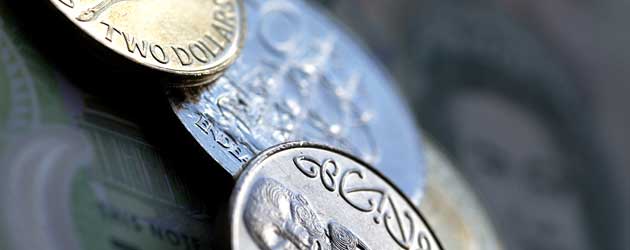
The Pound to New Zealand Dollar exchange rate (GBP/NZD) opened 0.8 cents higher for the week earlier this morning at 1.9332, up from Friday’s close of 1.9252. The ‘Kiwi’ Dollar declined in reaction to the news that an earthquake of magnitude 6.5 hit New Zealand on Sunday.
The minute-long quake struck around 35 miles from the capital city of Wellington, causing structural damage and leading to a state of shock. The worrying scene featured smashed windows, burst water pipes and power cuts. Luckily there have been no reported fatalities so far but as a precaution bankers in Wellington were told to stay at home as trading rooms were closed pending an investigation into the extent of the damage.
The natural disaster caused the New Zealand Dollar to become detached from other economic news over the weekend. On Friday afternoon the People’s Bank of China announced that it was planning to ease its lending rules in the country and on Sunday Japanese Prime Minister Shinzo Abe strolled to a massive victory in an election, which gives the arch-dove a strong mandate to continue with his economic reforms.
Friday’s announcement from the PBoC means that smaller banks will not have a minimum interest rate enforced upon them when lending to customers. The move is aimed primarily at boosting lending across the country, which is a good thing for the New Zealand Dollar as cheaper Chinese credit should theoretically lead to enhanced trade between the two Asian-Pacific nations. The symbolic significance of the decision is perhaps more profound as it could lead to future efforts to liberalise the Chinese monetary system towards a fully-fledged market-based economy. GBP/NZD shrunk by -0.7 cents in the immediate aftermath of the Chinese Central Bank’s statement.
Sunday’s strong, and strangely symmetrical, 74-47 victory in the Japanese upper-house ensures that Shinzo Abe’s ultra-dovish accommodative monetary policy looks set to continue for the foreseeable future. Abe told reporters afterwards that:
“We’ve argued that our economic policies aren’t mistaken, and the public gave us their support. People now want to feel the benefits. The economy is indeed improving.”
Earlier this year the Japanese PM vowed to purchase around £27 billion of government bonds per month, equating to around 10% of GDP on an annual basis, in order to drive borrowing costs lower, spur inflation and boost business investment. Indeed, it is now expected that Japanese GDP grew at a rapid pace of 3.0% in the three months to June indicating that the expansive measures have had an instant positive impact.
With Abe’s mandate strengthened further by the latest election victory, risk sentiment in the region soared and the Australian Dollar advanced 0.6 cents to 1.6580 against Sterling. However, due to concerns over the Wellington earthquake, the New Zealand Dollar was unable to take advantage of the bullish signal from Japan and remained at slightly depressed levels against the Pound.

Comments are closed.